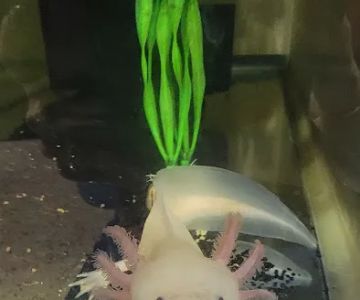Improving Your Pet’s Quality of Life Through Proper Nutrition
As a pet owner, ensuring that your furry friends live long, happy, and healthy lives is often at the forefront of your mind. While regular check-ups and sufficient exercise are crucial, one of the most significant ways to enhance your pet’s overall well-being is through proper nutrition. After all, what you feed your pet directly impacts their energy, coat quality, digestion, and even mood. Let me share how you can use nutrition to improve your pet’s quality of life, the benefits it provides, and some helpful tips to guide you in making the best food choices for your pets.
The Importance of Proper Pet Nutrition
Every pet, whether they’re a playful dog or an elegant cat, has unique nutritional needs. Many pet owners don’t realize just how much of a difference a good diet can make in their pet’s health. The right food can help prevent chronic diseases like obesity, diabetes, and heart disease, which are becoming increasingly common in pets due to poor eating habits.
For example, I remember when I adopted my first dog, Max. He was energetic but had an occasional stomach issue, which I later realized was due to poor-quality food. Switching to a higher-quality brand that was specially formulated for his age and size made a world of difference. He became more vibrant, and his digestive issues faded away. This was my first real lesson in understanding that nutrition plays a pivotal role in pet health.
Understanding Your Pet's Nutritional Needs
Just as people need specific nutrients to thrive, so do our pets. Dogs and cats have different nutritional requirements based on factors like their age, size, activity level, and health conditions. For example, puppies and kittens need more protein and fat for growth, while senior pets require a diet that supports joint health and maintains a healthy weight. Here’s a breakdown of essential nutrients that your pet needs:
- Proteins: Vital for growth, muscle development, and tissue repair. Animals like dogs and cats are carnivores and need animal-based proteins like chicken, beef, or fish.
- Fats: Fats are a rich energy source and are necessary for the absorption of fat-soluble vitamins. Omega fatty acids also contribute to a shiny coat and healthy skin.
- Carbohydrates: Though not as essential as proteins or fats, carbohydrates provide energy. Whole grains and vegetables are excellent sources of fiber.
- Vitamins and Minerals: These support overall body functions like bone health, immune system, and vision.
- Water: This is the most important nutrient. Hydration is essential for maintaining the body’s functions, from digestion to circulation.
Choosing the Right Pet Food for Your Pet
Finding the right food for your pet might seem overwhelming with so many options on the market. Should you go with dry kibble, canned food, or raw food? Here’s how to navigate these choices:
Dry Kibble vs. Wet Food
Dry kibble is often more convenient and has a longer shelf life. It can also help with dental health, as the crunching action can reduce tartar buildup. However, wet food tends to be more palatable for pets and can be more hydrating due to its higher moisture content.
Raw Diets
Raw feeding has gained popularity in recent years, and many pet owners swear by it. A raw diet can mimic what wild animals eat, which may include raw meats, bones, organs, and vegetables. However, it’s crucial to balance the diet properly, as raw feeding can sometimes be risky if not done correctly. Consulting a veterinarian is highly recommended before transitioning to a raw diet.
How to Introduce a New Diet to Your Pet
Switching to a new diet can be tricky. Pets can have sensitive stomachs, and a sudden change in food can lead to gastrointestinal upset. Gradually transitioning your pet to new food over the course of 7–10 days is recommended. Start by mixing a small amount of the new food with their current food, slowly increasing the new food while decreasing the old food.
Supplements for Your Pet’s Health
In addition to providing balanced meals, some pets may benefit from supplements. For example, if your dog is older, adding glucosamine and chondroitin to their diet can help with joint health. Omega-3 fatty acids are another supplement that helps maintain a shiny coat and reduce inflammation in dogs and cats alike. However, always check with your vet before introducing any supplements to ensure they are safe and beneficial for your pet’s specific needs.
Real-Life Success Stories: How Nutrition Improved My Pet’s Health
I can’t stress enough how the right diet transformed my pets’ health. After Max, my dog, I adopted a rescue cat named Felix. He was a bit overweight, which led to a number of health concerns, including limited mobility and lethargy. We worked closely with our vet to develop a tailored diet plan for Felix, focusing on weight management and a nutrient-dense formula to help him shed pounds without losing energy. After several months, Felix was more active, and his coat became shinier. His quality of life vastly improved because of the right nutritional choices.
Common Mistakes to Avoid
- Overfeeding: It’s easy to overfeed your pets, especially when they look at you with those adorable eyes. However, obesity is a major health risk for pets. Always measure portions and feed your pet according to their ideal weight.
- Not Reading Labels: Pet food labels contain valuable information about the ingredients and nutritional content. Look for foods that list high-quality proteins as the first ingredient, and avoid those with too many fillers like corn and soy.
- Skipping Regular Vet Visits: Regular check-ups with your veterinarian will ensure that your pet is getting the right nutrients and help you stay on track with their diet.
As I’ve learned from my own experience with Max and Felix, nutrition isn’t just about choosing food; it’s about choosing the right food for your pet’s individual needs. By staying informed and working closely with your vet, you can ensure your pets live healthier, happier lives. If you need advice or assistance in choosing the best food for your pet, I recommend checking out Hidden Brook Veterinary for expert care and guidance on pet nutrition and health.











